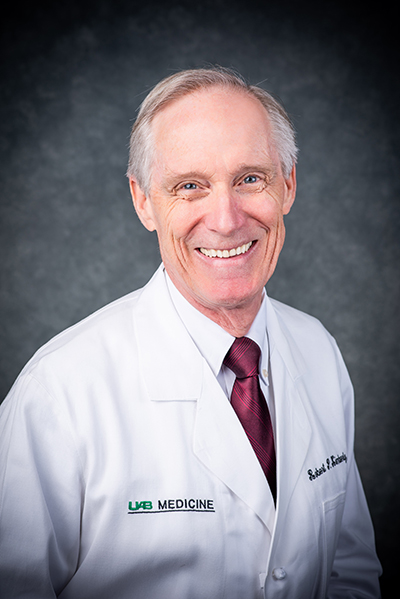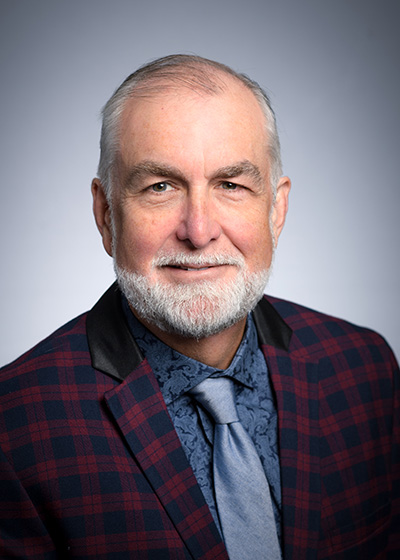Editor's Note: The information published in this story is accurate at the time of publication. Always refer to uab.edu/uabunited for UAB's current guidelines and recommendations relating to COVID-19.
 Robert Kimberly, M.D.A study led by the National Institutes of Health, the University of Alabama at Birmingham and the University of Pittsburgh will examine how many adults in the United States have been infected by the novel coronavirus but did not know they had it. Researchers will analyze blood samples from 10,000 adults to see if they have the antibodies to the virus, which indicates a prior infection.
Robert Kimberly, M.D.A study led by the National Institutes of Health, the University of Alabama at Birmingham and the University of Pittsburgh will examine how many adults in the United States have been infected by the novel coronavirus but did not know they had it. Researchers will analyze blood samples from 10,000 adults to see if they have the antibodies to the virus, which indicates a prior infection.
The results will demonstrate where the novel coronavirus has spread undetected in the United States and provide insights into the types of populations that are most affected.
“To understand the seroprevalence of antibodies is really important for developing our public health approaches to helping to manage the pandemic,” said Robert Kimberly, M.D., the study’s principal investigator and the director of the Center for Clinical and Translational Science at UAB. “It is a way to begin to understand the biology of the human response to COVID-19. We do not know whether COVID-19 is brand-new or whether it has been around for a while.”
The 10,000 volunteers who are participating in the study are made up of adults of all ages from across the country. However, researchers are slightly oversampling in geographical areas and in populations that have been most affected by the virus.
“We are trying to get a snapshot of what is happening in the population in general, as well as the populations that appear to be most at risk,” said Eric Ford, Ph.D., one of the lead researchers and a professor at the UAB School of Public Health.
 Jennifer Croker, Ph.D.Each participant, after confirming they have not been diagnosed with COVID-19, are healthy and do not have any symptoms, will be sent a test kit that contains a finger stick to provide a blood sample. The sample will be sent back to the NIH, where it will be processed to find out if that individual has antibodies to SARS-CoV-2, the virus that causes COVID-19.
Jennifer Croker, Ph.D.Each participant, after confirming they have not been diagnosed with COVID-19, are healthy and do not have any symptoms, will be sent a test kit that contains a finger stick to provide a blood sample. The sample will be sent back to the NIH, where it will be processed to find out if that individual has antibodies to SARS-CoV-2, the virus that causes COVID-19.
The data from the study will also help researchers understand herd immunity.
“We are trying to understand where there are antibodies even when people are not aware that they have had COVID-19,” said Jennifer Croker, Ph.D., one of the study’s lead researchers and assistant professor of medicine at UAB. “We would like to do future samplings to find out more about who has the antibodies. This is the first step in understanding herd immunity.
“Absent a vaccine, we want to reach herd immunity. For most diseases, 50 percent of the population needs to have been exposed; but with the infection rate of COVID-19, 65 to 70 percent of the population needs to be exposed to build up herd immunity,” Ford explained.
 Eric Ford, Ph.D.Kimberly says the study came together within a matter of weeks and is a result of the partnerships between the Center for Clinical and Translational Science, the School of Public Health, and the School of Medicine.
Eric Ford, Ph.D.Kimberly says the study came together within a matter of weeks and is a result of the partnerships between the Center for Clinical and Translational Science, the School of Public Health, and the School of Medicine.
“I have never seen a study go from concept to grant to full written approval in this amount of time,” Kimberly said. “The rapidity with which we were able to get it together and get the formal proposal to the NIH, while also receiving all internal approvals, represented multiple facets of the university’s coming together and working as a team."
Researchers hope to have a better understanding of the number of people who have been infected without knowing it by the end of the summer.